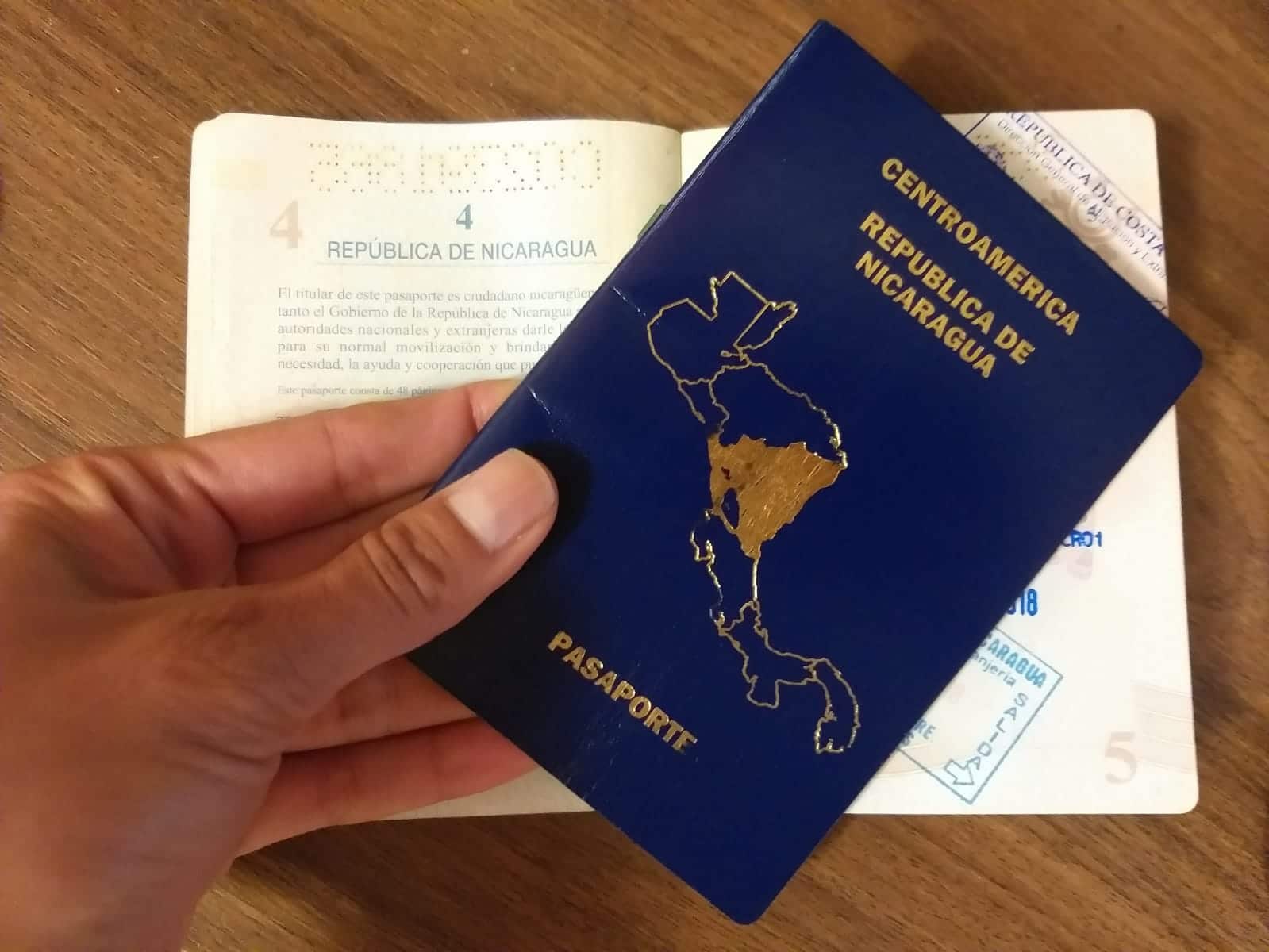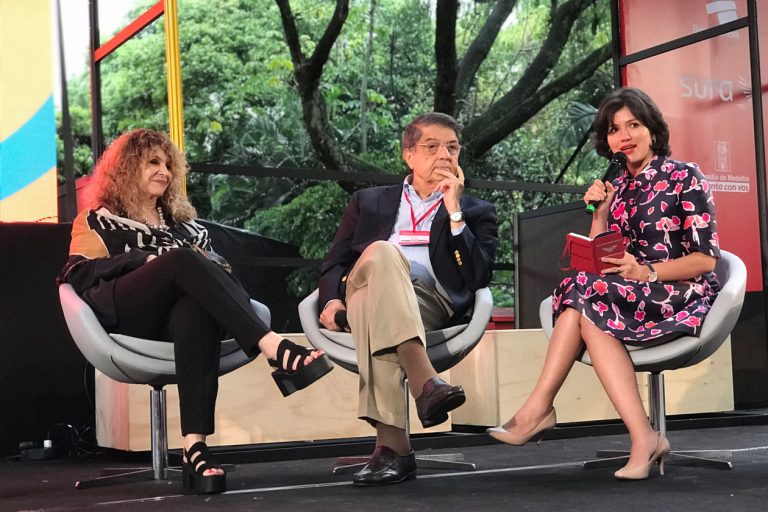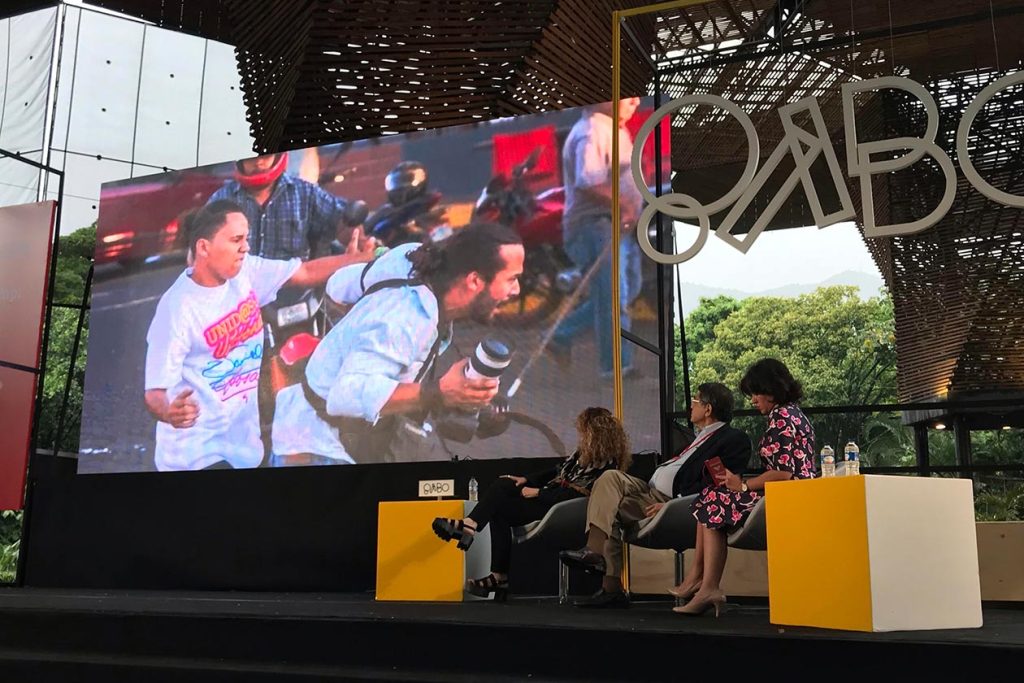6 de octubre 2018

Nicaragua: Public Employees Hindered from Traveling to USA

PUBLICIDAD 1M
PUBLICIDAD 4D
PUBLICIDAD 5D

Gioconda Belli, Sergio Ramirez and Sabrina Duque discussed the civic revolution that Nicaragua experiences. Carlos Herrera / Confidencial
During part of his life, Nicaragua was one of the obsessions of Gabriel Garcia Marquez. The Nobel Prize Winner from Aracataca not only saw himself narrating the Assault to the National Palace by the Sandinista guerrilla, but was also involved with the Sandinista Revolution in the eighties. Thirty-nine years after the revolutionary victory, what is happening in that volcanic country located in the waist of Latin America?
Writer Sergio Ramirez has an emphatic answer: “The revolution ended in 1990 and there is no second part. The only thing that has a good second is Don Quixote.” Instead, what happens currently is a civic rebellion that has been brutally attacked by the dictatorship of Daniel Ortega and Rosario Murillo.
Ramirez, winner of the Cervantes Prize, writer Gioconda Belly, and Ecuadorian journalist and writer Sabrina Duque participated in the Gabo Festival that takes place in Medellin Colombia, to talk about Nicaragua and the current sociopolitical crisis that has left more than 325 dead. “Nicaragua, the cry of the volcanoes,” was the title of the literary talk held in the space of the festival dedicated to “Gabo’s obsessions.”
The Nicaraguan writers knocked down the idea of the revolutionary heroic epic of the eighties reediting a second part since 2006, when the Ortega-Murillo couple returned to power to impose authoritarianism, messianism, nepotism, corruption and, more recently, bullets and death.
The sociopolitical crisis in Nicaragua has reached Colombia in bits and pieces through the news, and when their representatives before the Organization of American States (OAS) dedicate a good part of their speeches to condemn the Ortega regime. However, the Venezuelan crisis is closer to Colombians. The exodus caused by the regime of Nicolas Maduro regime has flooded the cities of Colombia with Venezuelans who come to work “at whatever.” In Medellin, there is no taxi-driver who does not talk about the “chamos” (pejorative way to refer to Venezuelans) who flee. They do not repudiate them as they do in Brazil, but certain uneasiness is expressed. “The socialism of Venezuela only brings misery”, says a taxi driver, as we headed to Medellin’s Botanic Garden, where the colloquium on Nicaragua was held. The taxi driver, on the other hand, knows little or nothing about what is happening in Nicaragua.
That is why the panel “Nicaragua, the cry of the volcanoes” resulted a novelty for hundreds of Colombia that attended it, most of them journalism students. “What has happened in Nicaragua is an accumulation of grievances. Is the Ortega Government a continuation of the Revolution? No. Nothing has to do (the Revolution) with the current power structure established in Nicaragua,” insisted Ramirez.
The panel was dedicated to the memory of National Hero and Martyr of Public Liberties, Pedro Joaquin Chamorro. A tribute was also paid to former President Violeta Barrios de Chamorro, who is in a delicate state of health, and whose trajectory marked the Nicaraguan history that had obsessed Garcia Marquez.
Sabrina Duque, an Ecuadorian journalist and writer, has been living in Nicaragua for more than a year. She won the Michael Jacobs Travelling Chronicle 2018 Scholarship with her project: “Nicaragua: villages, lava and ashes.”

The civic protests that began on April 18th was recounted by the Nicaraguan writers to the Colombian public. Carlos Herrera / Confidencial
“My purpose was to narrate the loving and risky relationship of Nicaraguans with their volcanoes. But on April 18th the country that I had moved to a year earlier was beginning to erupt. In those days I was in the middle of writing my book. Suddenly, the revolution by the grandchildren of Sandinismo began. Rapidly, we began counting the dead by handfuls every day,” Duque said. “In the following months in Nicaragua the earth would tremble a couple of times, the cities would barricade against official repression and the San Cristobal and Telica volcanoes would erupt. And the Sandinista revolution songs, slogans and images would return.”
The writer Gioconda Belli said that after April 18th Nicaragua “changed forever.” The poet pointed out that the social explosion was not caused by a political party. It was the youth who snatched the streets from the dictatorship of Daniel Ortega. Many teenagers defied power and organized with the experience of the past.
“The kids have it (rebelliousness) in their blood. They grew up listening to their parents tell the story of the Revolution,” stated Belli. “The youth have a big tendency towards horizontality, and a lot of distrust in political parties. Nicaragua wants a more democratic form of exercising power,” she added.
The writers, Ramirez and Belli, agreed that for that reason there are no consolidated leaders in this civic rebellion. They ruled out that those who made the Sandinista Revolution such as them, Dora Maria Tellez and Hugo Torrez, for example, want to assume any leadership in the current context.
“Dora Maria and company do not claim any political leadership. Nor do the people confer that to them either. People are clear on the return to freedom, justice and democracy. There is no political proposal, and that will be provided when the time comes. The new generation of “nicas” (Nicaraguans) will have to assume it, and it is not worrisome that it doesn’t appear now,” stated Ramirez.
Meanwhile, Belli said that Nicaragua is carrying out “a process of unification of different organizations and people” to decide, through “a united and democratic process,” who will lead this citizen movement.
Ramirez insists that the solution to this crisis should not be violent or armed. He does not want a coup d’état or a civil war, because, “nothing good has ever come out of those.”
“The possibility that we will have a democratic change of government is a very certain possibility, there is no lost hope, that is the great aspiration of Nicaraguans. There is total incompatibility between society and the regime. It is important to understand that,” stated Ramirez in “Gabo’s obsessions.”
Archivado como:
PUBLICIDAD 3M
Periodista. Destaca en cobertura a violaciones de derechos humanos: desplazamiento forzado, tráfico ilegal en territorios indígenas, medio ambiente, conflictos mineros y ejecuciones extrajudiciales. Premio Iberoamericano Rey de España 2018.
PUBLICIDAD 3D